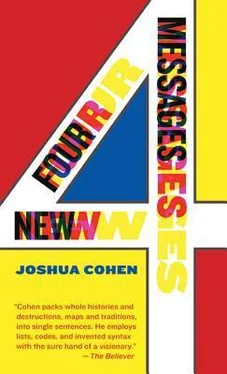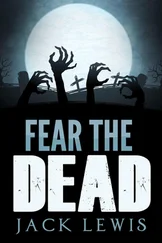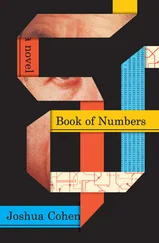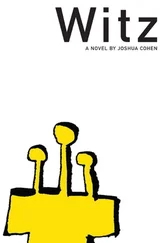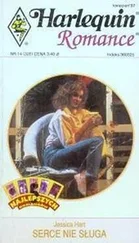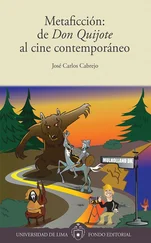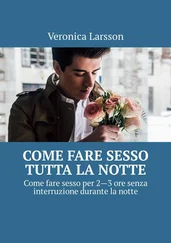Not anymore pure people of skeletonized flesh, yet also not purely data transmission of image and sound, they dwell instead in the middle — limboed, in an interim stage — abiding a gaplife as something between.
At best as an essence of what they once were — half theirs and half yours now: David’s, Orlando’s, gregarious Gregory and Yury’s — shut into this secret repository, into this archive they live in, a cache of the senselessly undead.
For steadiness he sipped at his now tepid bitter tea, keeping his eyes on the rude snout of his ursal host, on the ear that kept twitchily ticking.
Your Moc — the bear producing a rumpelskin paper from a slit in its parachute housedress, the printout showing the Missing caged on a page, caged in a screen, depicting the Wanted at the very beginning of mid-act — your Moc is not as she was, but she is still herself.
She has already entered that other realm, that porousness beyond borders, that Freedom …
The bear crumpled a corner of the printout in its paw, dipped it in its own tea (untouched), began eating it wet. Those eyes nailing themselves into his. As drops of the drink smeared its fur, matting the fur that was just then wrapping around him, he who couldn’t help but stare — at that lewd dewy snout, that lurid ear tick, the sharpened nails of those eyes — couldn’t help but close his own now, he was exhausted, he was softly enfolded, he apologized, mumbling, he hadn’t properly slept in over a month …
XXX
_________________
(notes for a videographer)
He wakes in the forest.It is dark and it is thick, with green and brown like the swirl of a clogged toilet. Wastepaper hanging from the trees, lots of trees. Sweaty profferings of verd as if not grown but enlusted, bouquets of let loose bush. Pubescent stalks sprung up between pawprints, deep but shallowly filled, like wells with toes, with talons, their moisture stagnant, a dankness pervades, the stalks decompose. Evidence of uprootings. Trees big and wet — when did it rain? up on their roots exposed like rusted struts, like scaffold. Hills just ahead like steppingstones to hills, like stones topped with walls of trees, with a sky of trees screening out the sun. (I’m doing my best here. This would all sound so much better in an original.)
Af yge enneb inle mezre ygu … it feels “like being inside wood” (as if I’d been spellbound, trapped, imprisoned within a tree, then axed). He’s bruised all over his body, bruises brackish in color like his skin’s a passport cover, or as if his insides have been stamped with the splotch of poisonous berries — apparitions smeared across his stomach, faces null like navels. Everything hurts, his ribs hurt. His arms and legs feel shorter, he feels smaller, like a boy, younger than a boy. Wondering, wondering — what miracle decoction was that? what potion that stranger bruin conked me out with?
He’s cold, wearing less clothes than he had been. Less a jacket, there’s nothing returned to his pockets, there’s no wallet, no return tix or pass. No oily key hard alongside his hardness, his wakingtime erection. An eye is swollen, a lip bleeds, he feels like he’s broken a bone in his cheek. In his throat. He is thirsty — he goes.
The trickle is from a nearby stream whose water could not be anything but fresh, flowing, as even he’s aware, from uphill even sweeter.
He follows, follows the stream’s sharp dark carving of the hill, pausing only to wash himself and sip at a knotted pond, continuing.
This compulsion to ignore the fakeries and secondlives, for the origin, the source — he wants not the trickled down, he wants the wellspring only.
He trails through the woods, along the weedy banks in squeaking sneakers. The grain grades steeply, while the pits he has to avoid on his way are not wells to other worlds but the wet sucking prints of the outsize dogs that roam here. The big shaggy shepherding monstrosities he could ride atop — they prowl patrol around the summit’s settlement, chaining the moat, the wall’s circumsomnia.
Now he is hot, being so close to the sun — a lamp brought close by an invisible hand from above, swiftknuckled, silent. The summit rising only to flatten toward a desk, a desktop. And somewhere farfaraway — the sound of pages being turned or the clicking of keys — a chair unreclining, brought closer, closer.
Each of his bruises pulsates, pounds, giving off heat of its own, like he has circuits secreted inside, like overwork has ruined them.
The dogs he recognizes, just then, he recognizes as Sparkins — a litter of them, more, litters’ clones of the one he’d had to be named after, nicknamed after, that one disastrous year before his parents were forced to sell it, or maybe, he’d suspected, put it down, because Dad in his couched craziness got allergic. But Sparkins a bit larger than the Sparkin he’d had, quite a bit larger, even from a distance. Enormous lumbering Sparkins trundling their guard, stepping over stumps, stepping through trunkhoarded piles of leafy cereal flakes, flecked with crystals of sugar, of salt. Blown piles up to the moat, then on the moat’s other marge up to the fortress wall, blown spoons and bowls and the smothering plastic that bagged them — as if cumulus that’d been slammed by the wind into the trees and wall, becoming stilled, dispersed, disincarnated.
This city, being walled, is inherently attractive — not just in the artificial picturesque sense. When you are not wanted in, you want in, but maybe making you want in is the sense of a wall, its purpose. Where you are not needed you run to make yourself, you must, indispensable. He comes unheard and unseen, but perhaps the Sparkins are used to him already. Unheard because of their enlarged dogtags jingling in stride, jingling like bells. Unseen because he sneaks his way low and nimble. Toward the bridge’s access, the bridge over the moat. The moat heaped with gray and creamcolored boxes. With monitors and drives, modems and printers — all the elements of an obsolete technology, too useless to be recycled as another’s access and so, their discard to hazard a fall: no water but a bog of coaxial cables in barbed coils, sharded screens of bridgelike wires, their innards exposed to spears and spikes, gutted lengths unwound to a murderous serration.
No foreigner storming invasion but a hero lost from a bedtime telling of immemorial nights, wandered from a page: he stands as if a pixel, a lone pix fixed at the drawbridge’s lip — a drawbridge, a moat, each flattened, flat, smooth the page, Reload.
To enter through the portcullis withdrawing, through its portal … (this is where I write from now — Dear Mom, cc: The End — I must have fainted).
I wake in a square, undressed but tended. My bruising beginning to subside. And in its stead, a glow fanning through me, as if the opening rose of health, as if vigor.
The town is a setting of lithic streets and alleys, the houses themselves logged of dilapidated wood — but lived in, not neglected, textured.
Nobody is around — no presences I sense directly — but I feel, I prickle as I feel — these floatings, these passings.
A brush of hair or a gusting sway, as if the skirt of the wind blowing by me, blushing up my cheeks. A skin’s prick to horripilate the wrist, a nail’s graze or a lovemark left by teeth. As I begin — this is how I begin — gradually, after days, a week, to see.
Everywhere — as if enclosed, as if my life’s been flattened up against the seething surface of my eye — everywhere I look soon there are women, there are girls.
I see them, by seeing through them. Their beings projected onto every surface, on every ceiling and floor and sky, projecting across every window and alley’s curve, across and as every doorway’s gracious waist — the walls, visible through them in wrinkle crack and cellulite chip, in spall and score and peeling paint, temporarily aging them in their revenance. But then they float again, they pass again — eidola of posturing plank, with glints of screwy smiles — their youth preserved only in their motion.
Читать дальше
